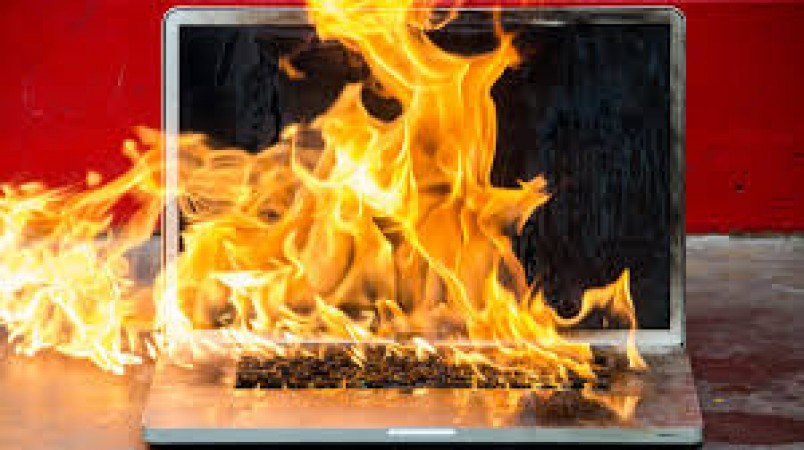
Computers are an integral part of our daily lives, serving various purposes from work to entertainment. However, while we often focus on their utility and convenience, it's essential to recognize the potential dangers they can pose if not properly managed. One significant risk that often goes overlooked is the potential for computers to overheat, leading to catastrophic consequences such as fires.
The Common Mistake
Many computer users unknowingly commit a grave error that significantly increases the risk of overheating: obstructing the computer's ventilation system. This can occur in several ways, such as placing the computer on soft surfaces like beds or carpets, stacking objects around it, or neglecting to clean the dust accumulated in its vents and fans.
Understanding Computer Overheating
Computers generate heat during operation, which must be dissipated to prevent internal components from reaching dangerously high temperatures. The ventilation system, including fans and vents, plays a crucial role in this process by facilitating airflow to cool down the components. When this airflow is obstructed, heat accumulates within the computer, potentially causing components to malfunction or even ignite.
The Fire Hazard
Overheating computers pose a significant fire hazard, especially in households where flammable materials are present. If internal components reach temperatures conducive to ignition, such as those found in the vicinity of electrical fires, the risk of a fire breaking out increases substantially. In worst-case scenarios, a small spark or electrical malfunction within the overheated computer can lead to a full-blown blaze, endangering lives and causing extensive property damage.
Preventive Measures
Fortunately, preventing computer-related fires is relatively straightforward with some basic precautions:
Proper Placement: Always place the computer on a hard, flat surface with ample ventilation to ensure unrestricted airflow around the device.
Regular Maintenance: Routinely clean the computer's vents and fans to remove dust and debris buildup, which can impede airflow and contribute to overheating.
Avoid Overloading Outlets: Do not overload electrical outlets or power strips with too many devices, as this can increase the risk of electrical fires.
Invest in Cooling Solutions: Consider investing in additional cooling solutions such as external fans or cooling pads, especially for high-performance computers or those used for prolonged periods.
Monitor Temperature: Utilize software tools to monitor the temperature of your computer's internal components and take action if temperatures exceed safe limits.
While computers offer numerous benefits, it's crucial to remain vigilant and aware of the potential hazards they can pose if not properly managed. By avoiding common mistakes such as obstructing ventilation and implementing preventive measures, you can significantly reduce the risk of computer-related fires and ensure the safety of your household.
Concerns Rise Over Pitch Quality as Rohit Sharma Recovers Ahead of Pakistan Clash
How Uganda Achieved Their First Victory in the T20 World Cup 2024
Mark Your Calendars: India's Fixture List for the T20 World Cup